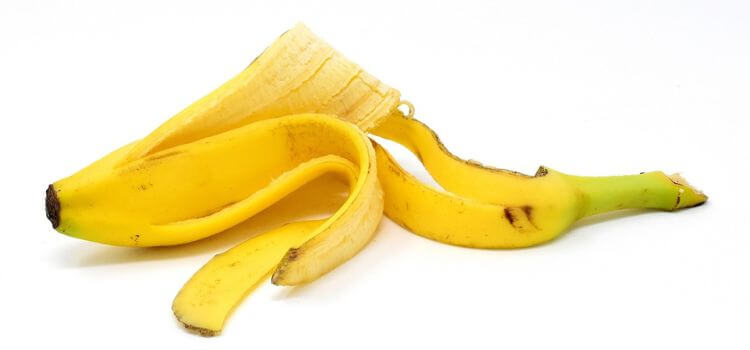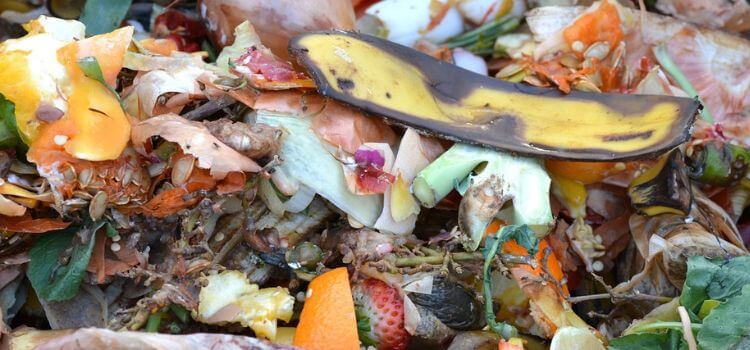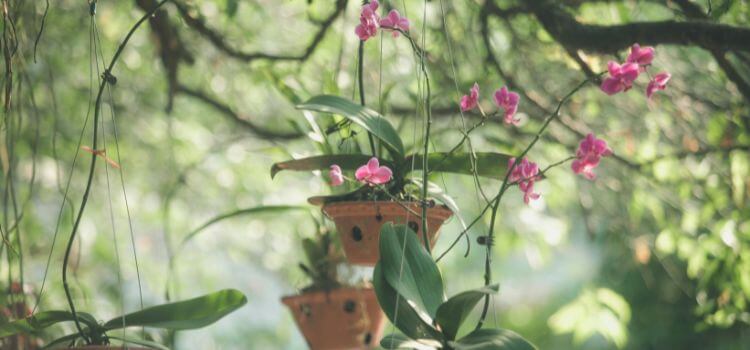As an Amazon Associate, I earn from qualifying purchases.
Use compost tea or worm castings to fertilize orchids naturally. These provide essential nutrients without harsh chemicals.
Orchids require balanced nutrition for healthy growth and vibrant blooms. Natural fertilizers like compost tea and worm castings are excellent choices. Compost tea is rich in beneficial microorganisms that enhance soil health and nutrient absorption. Worm castings, on the other hand, offer a slow-release source of essential nutrients.
They improve soil structure and encourage root development. Both options are eco-friendly, promoting sustainable gardening practices. Regularly applying these natural fertilizers ensures orchids receive the nutrients without synthetic additives. This approach supports long-term plant health and minimizes environmental impact. Embrace natural fertilization methods to keep your orchids thriving beautifully.
Why Choose Natural Fertilizers
Natural fertilizers keep orchids healthy and strong. They are safe for the environment, help orchids grow without harmful chemicals, and are easy to find and use. They also save money and protect nature.
Eggshells As A Natural Fertilizer
Crushed eggshells are great for orchids. They provide calcium, which orchids need. Simply crush the eggshells into small pieces and sprinkle them on the soil around your orchid.
Banana Peels For Nutrients
Banana peels, which contain potassium and other nutrients, can help your orchids grow. Cut the peels into small pieces and bury them in the soil near the roots.

Compost Tea For Orchids
Compost tea is a super fertilizer that provides many nutrients to orchids. To make compost tea, mix compost with water, let it sit for a few days, and then water your orchids with it.
Fish Emulsion For Growth
Fish emulsion is rich in nutrients. It helps orchids grow strong. Mix fish emulsion with water. Use it to water your orchids. Follow the instructions on the label for the right amount.
Coffee Grounds For Acid-loving Orchids
Some orchids like acidic soil. Coffee grounds can help with this, lowering the soil pH. Sprinkle used coffee grounds on the soil once a month for best results.
Read Also: Lawn Fertilizer Vs Lawn Food
Orchid Nutritional Needs
Orchids are beautiful and delicate plants. They need special care to grow well. Using natural fertilizers helps them stay healthy and vibrant. Understanding their nutritional needs is critical to giving them the proper care.
Macronutrients
Orchids need macronutrients in large amounts to grow strong and healthy. The primary macronutrients for orchids are nitrogen (N), phosphorus (P), and potassium (K).
Nitrogen helps orchids grow leaves and stems. It is essential for their overall growth. Phosphorus helps them develop strong roots and beautiful flowers. Potassium helps orchids fight diseases and stress. It also helps them grow strong and healthy.
Here are some natural sources of these macronutrients:
- Composted manure – rich in nitrogen
- Bone meal – a good source of phosphorus
- Wood ash – provides potassium
A mix of these natural sources can help orchids get the necessary macronutrients. Always use small amounts to avoid over-fertilizing, as too much fertilizer can harm the plants.
Micronutrients
Orchids also need micronutrients to stay healthy. These are nutrients they need in smaller amounts. Some essential micronutrients for orchids are calcium, magnesium, and iron.
Calcium helps orchids build strong cell walls. This makes them less likely to get sick. Magnesium is essential for photosynthesis. It helps orchids make food from sunlight. Iron helps orchids produce green leaves.
Here are some natural sources of these micronutrients:
- Eggshells – provide calcium
- Epsom salt – a good source of magnesium
- Compost – contains trace amounts of iron
Adding these natural sources to the soil can help orchids obtain the necessary micronutrients. However, always be careful with the amounts. Too much of any nutrient can be harmful to plants.
Organic Fertilizers For Orchids
Orchids are beautiful flowers that need special care. Natural fertilizers help keep them healthy. Organic fertilizers are safe and sound for the environment. They provide the nutrients orchids need to grow strong and bloom beautifully.
Compost
Compost is an excellent organic fertilizer for orchids. It is made from decomposed organic matter like leaves and kitchen scraps. Compost adds nutrients and improves soil structure.
Mix compost for orchids with the potting medium. Here are some benefits of using compost:
- Improves soil drainage
- Adds essential nutrients
- Enhances root health
Compost helps orchids grow better and produce more flowers.
Manure
Manure is another effective organic fertilizer. It is rich in nutrients like nitrogen, phosphorus, and potassium, which are important for orchid growth.
Manure can be from cows, horses, or chickens. Always use well-rotted manure to avoid burning the plants. Here are some benefits of using manure:
- Provides slow-release nutrients
- Improves soil structure
- Boosts microbial activity
Manure helps orchids grow strong and healthy.
Seaweed Extract
Seaweed extract is an excellent fertilizer for orchids. It contains minerals and trace elements that orchids need, helping to improve plant growth and flower production.
To use seaweed extract, dilute it with water. Spray it on the leaves or add it to the soil. Here are some benefits of seaweed extract:
- Stimulates root growth
- Increases resistance to pests
- Enhances flowering
Seaweed extract keeps orchids healthy and vibrant.
Fish Emulsion
Fish emulsion is a popular organic fertilizer. It is made from fish waste and is rich in nutrients. Fish emulsion provides nitrogen, phosphorus, and potassium.
Dilute fish emulsion with water. Apply it to the soil or spray it on the leaves. Here are some benefits of fish emulsion:
- Encourages lush growth
- Boosts flowering
- Improves soil health
Fish emulsion helps orchids thrive and bloom beautifully.
Banana Peel Tea
Banana peel tea is an easy and effective organic fertilizer. It is rich in potassium and other nutrients, which help orchids produce strong flowers.
Soak banana peels in water for a few days to make banana peel tea. Use the water to water your orchids. Here are some benefits of banana peel tea:
- Provides essential nutrients
- Boosts flowering
- Enhances plant health
Banana peel tea is a simple way to keep orchids healthy and blooming.
Read More: How to Grow Orchids Without Soil?
Preparing Natural Fertilizers At Home
Orchids are delicate and beautiful plants that require special care. Natural fertilizers are one of the best ways to care for them. Preparing natural fertilizers at home can help your orchids thrive without harmful chemicals. This guide will teach you how to make natural fertilizers perfect for orchids.

Composting
Composting is an excellent way to create a rich, organic fertilizer for your orchids. It involves decomposing organic materials, such as kitchen scraps and garden waste, to create nutrient-rich compost.
Here are the steps to start composting:
- Choose a compost bin or pile.
- Add green materials like fruit and vegetable scraps.
- Include brown materials like dried leaves and cardboard.
- Keep the compost moist but not waterlogged.
- Turn the compost regularly to aerate it.
After a few months, the compost will break down into dark, crumbly material. This is your organic fertilizer, perfect for orchids.
Making Manure Tea
Manure tea is another excellent natural fertilizer. It provides essential nutrients for your orchids. To make manure tea, follow these steps:
- Fill a burlap sack with aged manure.
- Place the sack in a large bucket or barrel.
- Fill the container with water.
- Let the mixture steep for a week.
- Stir the tea daily to mix the nutrients.
After a week, strain the liquid. Use this nutrient-rich tea to water your orchids. It will help them grow strong and healthy.
Creating Seaweed Extract
Seaweed extract is a fantastic natural fertilizer. It contains many essential nutrients and trace elements. Here’s how to make it:
- Collect fresh seaweed from the beach.
- Rinse the seaweed to remove salt and sand.
- Chop the seaweed into small pieces.
- Place the pieces in a bucket and cover them with water.
- Let the mixture sit for a few weeks, stirring occasionally.
After a few weeks, strain the liquid. Dilute the seaweed extract with water before using it on your orchids. This will provide them with essential nutrients.
Homemade Fish Emulsion
Fish emulsion is a potent organic fertilizer. It’s rich in nitrogen, which is crucial for plant growth. Follow these steps to make fish emulsion:
- Collect fish scraps from your kitchen.
- Place the scraps in a large container.
- Fill the container with water.
- Add a tablespoon of molasses to the mixture.
- Stir well and cover the container.
Let the mixture ferment for a few weeks, stirring occasionally. After fermentation, strain the liquid and dilute it with water. This fish emulsion will give your orchids a significant nutrient boost.
Banana Peel Fertilizer Recipe
Banana peels are rich in potassium, making them an excellent natural fertilizer for orchids. Here’s a simple recipe:
- Collect banana peels from your kitchen.
- Chop the peels into small pieces.
- Place the pieces in a jar.
- Fill the jar with water.
- Let the mixture sit for a week.
After a week, strain the liquid. Use this banana peel fertilizer to water your orchids. The potassium will help them bloom beautifully.
Applying Natural Fertilizers To Orchids
Fertilizing orchids naturally is a beautiful way to ensure they grow healthy and strong. Orchids are delicate plants that need special care, and using natural fertilizers can provide them with the nutrients they need without the risk of chemical burns. Natural fertilizers are often gentler and can improve the soil quality over time. Using natural methods, you can keep your orchids thriving while being kind to the environment.
Timing And Frequency
Fertilizing orchids at the right time is crucial for their growth. Orchids typically need fertilizing during their growing season, which usually occurs in the spring and summer months. During these times, orchids are actively growing and can make the most of the nutrients.
Here are some tips for timing and frequency:
- Fertilize orchids every two weeks during their growing season.
- Reduce fertilization to once a month during the fall and winter.
- Constantly water your orchids before applying fertilizer to avoid root burn.
Using a diluted natural fertilizer is critical. Orchids are sensitive, so a weak solution is better. A common rule is to use half the recommended strength of the fertilizer. This prevents over-fertilization and keeps the orchids healthy.
Dos And Don’ts
Understanding what to do and what to avoid can make a big difference in orchid care. Follow these simple dos and don’ts to keep your orchids happy and healthy.
Dos:
- Use natural fertilizers like compost tea, fish emulsion, or seaweed extract.
- Apply fertilizer in the morning to give orchids time to absorb nutrients.
- Ensure the soil is moist before fertilizing to prevent root damage.
- Monitor the health of your orchids regularly to adjust the fertilization plan if needed.
Don’ts:
- Never use chemical fertilizers on orchids, as they can cause harm.
- Avoid fertilizing orchids during their dormant period.
- Do not apply too much fertilizer; always stick to a diluted solution.
- Refrain from fertilizing orchids if they are stressed or sick. It can worsen their condition.
By following these guidelines, you can ensure your orchids naturally receive the nutrients they need, promoting their health and growth.
Signs Of Overfertilization And Underfertilization
Orchids are beautiful, delicate flowers that need special care. Natural fertilization can help them grow strong and healthy, but it is important to know the right balance. Signs of overfertilization and underfertilization can help you take better care of your orchids.
Yellow Leaves
Yellow leaves often mean overfertilization, in which the plant gets too many nutrients. Underfertilization, in which the plant does not get enough nutrients, can also cause yellow leaves.
Burnt Leaf Tips
Burnt leaf tips are a common sign of overfertilization. Too much fertilizer burns the tips. This can harm the plant.
Weak Growth
Weak growth can indicate underfertilization. The plant lacks essential nutrients. It cannot grow strong and healthy.
Fertilizer Crust
A crust of fertilizer on the soil surface is a sign of overfertilization. It shows the plant does not absorb excess fertilizer.
Leaf Drop
Leaf drop can occur with overfertilization when the plant sheds leaves to protect itself. It can also happen with underfertilization when the plant struggles to maintain its leaves.
Natural Fertilization Methods
Using natural fertilizers can help avoid these issues. Eggshells, banana peels, and coffee grounds are great options. They gently provide essential nutrients.
Frequently Asked Questions
The best homemade orchid fertilizer consists of banana peels, eggshells, and water. Blend the ingredients and dilute the mixture before use. This provides essential nutrients for healthy growth.
Fertilize potted orchids every two weeks during growth. Use a balanced 20-20-20 fertilizer. Dilute to half-strength. Water orchids first, then apply fertilizer. Reduce feeding in winter.
Tea bags can benefit orchids by providing nutrients and improving soil quality. Use only organic, non-flavored tea bags.
Coffee grounds can benefit orchids in small amounts. They provide nitrogen, improve soil structure, and help drainage. Use sparingly to avoid over-acidity.
Conclusion
Fertilizing orchids naturally can be simple and effective. Use organic materials like compost and fish emulsion. This promotes healthy growth and vibrant blooms. Remember to fertilize sparingly to avoid overfeeding. With these tips, your orchids will thrive beautifully. Embrace natural methods for a sustainable gardening practice.
Happy growing!

